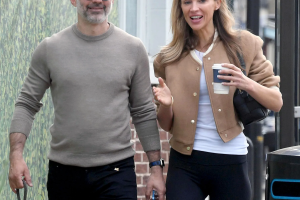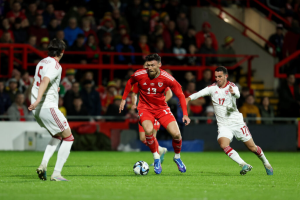
THE WELSH RUGBY UNION (WRU) group has re-invested £33.1m into the national game, which equates to an 11% increase over the previous year, according to its latest Annual Report.
The percentage growth in the re-investment in rugby is broadly tracking the percentage growth in revenues.
This record investment comes after the refinancing undertaken in June 2015 and a strategic decision taken by the group to re-invest more into the game, rather than retaining any profits to enhance net assets.
Total investment in Welsh rugby has increased by £3.4m from £29.7m previously, with all money earned now being re-invested into the game; the group retained a profit after tax of £0.1m.
An impressive set of results for the financial year ending June 2016 also sees group’s turnover increase to £73.3m from £64.8m previously – a 13% increase – and the group’s net bank debt reduced to £11m (from £14.2m), largely achieved through working capital management and reduced capital expenditure.
The total investment in community clubs increased by 16% from £6.8m to £7.9m, principally due to the investment in the school club hub programme, in digital strategy costs associated with a conscious decision to better promote the community game and facility grants.
The investment in the Principality Premiership increased by 14% to £1.6m and the investment in the Regions increased by 12% to £19.3m.
The WRU group welcomed 346,000 (2015: 395,000) rugby spectators to Principality Stadium during the year. The average attendance per match was 69,000 (2015: 66,000) and equated to an average of 93% (2015: 89%). The average ticket income per attendee at matches held at Principality Stadium was £39 (2015: £47).
“We are delighted to be able to announce a solid set of financial results for the year ending June 2016,” said WRU Chief Executive Martyn Phillips, who is contributing to his first annual report since his appointment in October 2015.
“We have been able to increase re-investment in all levels of the game, specifically the community game, the Premiership clubs and the Regions.
“Our clubs, the community game and all the players, coaches and other volunteers at that level are the lifeblood of our national sport. We are proud to be able to say that all the group’s revenues have been re-invested back into the game and that investment is at record levels in each of the Regional, Premiership and community games, as well as on an overall basis.
“Looking forward, we face a new set of challenges. On the one hand, we are fortunate in that we have a number of strong long term commercial partnerships with Under Armour, Principality and broadcasting, as examples; on the other, we will now need to identify and grow new revenue streams as our need to invest is likely to grow more rapidly than revenues.
“Our first focus will be to drive an increased number of events at Principality Stadium. We will also look to increase merchandise sales, stadium tours, and we are considering creating a rugby museum.”
WRU Chairman Gareth Davies added: “We are very conscious of our responsibility to community clubs.
“We will always look to increase our support for clubs and we will increasingly look to facilities grants as the vehicle for us to do this.
“Helping clubs to invest in their facilities allows them to become more attractive to their local communities as a social hub.
“We want to ensure that our clubs are at the heart of their communities which particularly attract families, women and children.
“Provision of food, WiFi and well-kept facilities, as general examples, are the key for clubs to enable them to become more self-sufficient. We plan to invest in clubs to help them in this regard.
“Our focus on alternative forms of the game, for example, tag, touch and festival rugby, along with the growth of women’s and girls’ rugby, will, I’m sure, see clubs thrive as new and more diverse members of the community frequent our clubhouses, engage in volunteering and, we hope, help run our clubs.”
And Martyn Phillips is also keen to share his vision for the future within the pages of the Report: “We have a clear purpose as to why we exist as an organisation. We have defined this as ‘more people, more often, with more enjoyment and more success’.
“We want to encourage as many people as possible to engage with our game, whether they be supporters, players, coaches, referees, commercial partners, medics or volunteers.
“We recognise that the majority engage with rugby for enjoyment. We are aware that rugby is a social sport and the club is often at the heart of the community. We want to be a sport that enables enjoyment for all the family.”
The group’s Finance Director, Steve Phillips, said: “We are delighted to once again be able to report a financial performance robust enough to increase our level of re-investment into Welsh rugby.
“Consequently, we have now taken a strategic decision to seek to re-invest more into the game rather than retaining any profits to enhance net assets.”
Martyn Phillips continued to explain key details about the group’s strategy for the future of the game. He said: “We want to drive participation in our community game but we also know that for some it’s all about winning.
“Winning is at the heart of sport and we want to make it possible for individuals and teams to win more often as a result of our efforts. We also recognise the pride the nation feels when our national teams win and we want to make that a regular reality.
“We are working more closely than ever with our Regions to achieve this collective aim and occasions like the near capacity Judgement Day IV at Principality Stadium are symbolic for the WRU and the Regions.
“Our coaches share a collective aim for success on the pitch and we are working together more than ever in terms of coaching and playing styles, player welfare and in exchanging ideas, as well as continuing to further develop our positive relationship off the field.”

















Add Comment